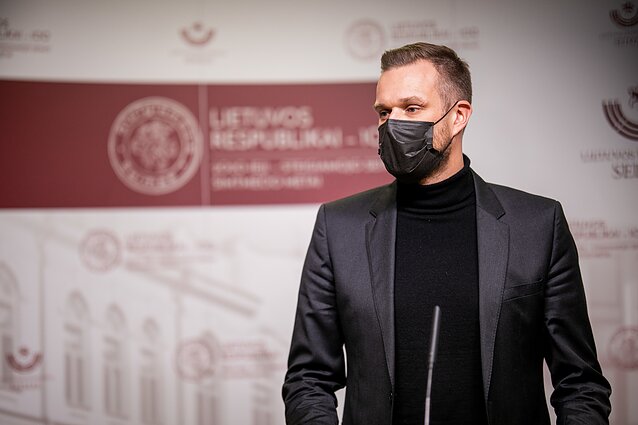

The Baltic News Agency (BNS) interviewed Lithuania’s new Foreign Minister Gabrielius Landsbergis about foreign policy
Asked what he would do differently from the previous minister, Foreign Minister Gabrielius Landsbergis explained that Lithuania’s foreign policy is based on consensus, and no huge changes should be expected between elections. The fundamental principles as to the transatlantic partnership and good relations with neighbours who respect the rule of law remain in place. As will Lithuania’s approach to continuous threats from neighbours to the east and further.
Possibilities for Lithuania’s influence in foreign policy lie in proposing change, being heard and seeing that change. Landsbergis hopes to expand the circle of friends and focus less on relations with potentially hostile states. As to what Lithuania’s relationship with Russia is, whether it will change and whether there will be new developments, he said no answer is needed when nothing changes. He envisions a much stronger policy, toward the future democratization process in Belarus and the revitalization of the Eastern Partnership. “We can even turn a new page of policy when it comes to East Asian states, instead of trying to polish a very precise relationship with those states that pose national security challenges.” Regardng the rule of law, the Foreign Minister said he meant primarily the Belarussian regime, emphasizing that “The EU is a union of democratic states. That is our fundamental premise.”
The interviewer noted that the European Commission says the Polish government violates the independence of the judiciary, the media and non-governmental organizations, and the Polish authorities categorically disagree with that. Landsbergis stated his reluctance to choose sides, saying: “We, as close friends of Poland, are following the situation and are sometimes following it with concern, and I am not saying that we should be happy with all the news that reaches us from Warsaw. But this does not change the key, fundamental principle that Poland is nevertheless our closest friend. The strategic partnership that has been built for centuries cannot be scaled down into a different relationship in a year or even a decade. We are bound by more than just day-by-day politics; our historical relationship and spiritual ties are much deeper, coming from the depths of history. That relationship is based on mutual responsibility for preserving, protecting and nurturing it, but this does not mean that we should not see that certain challenges sometimes emerge in one or another state.”
Asked how he would vote if faced with a choice of reconciling European values with good relations with Poland (when voting in the EU Council on possible sanctions against Poland), Landsbergis noted that the EU could overcome challenges by compromise, as it had done recently in regard to access to the Recovery Fund. “The EU is an alliance based on compromise.”
With regard to Belarus, Landsbergis noted that the third package of sanctions is now being finalized, and there is some talk of a fourth package if the situation in Belarus does not change. In his opinions, all instruments that restrict the right of individuals to enter the EU must be used. Financial institutions should check for the sanctions lists for individuals with financial resources in Lithuania, so that their assets may be frozen.
His strategy for the Astravyets nuclear power plant, located in Belarus, 50 km from Vilnius, is to continue with the principled position put forth during the election campaign, and included in the coalition agreement and the government’s program. That is, there can be no commercial trade in Astravyets electricity. The nuclear power plant, which opened in early November, is owned by Russia’s state nuclear corporation Rosatom, and its proximity to Lithuanian has given rise to fears about its safety.





























